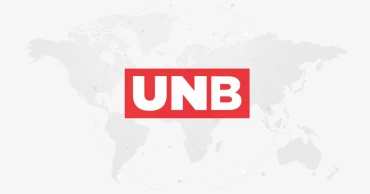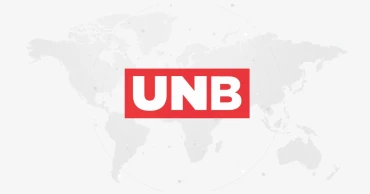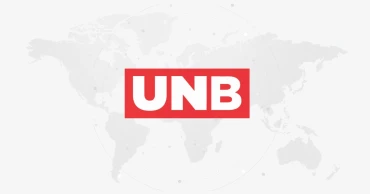socio-economic development
UN chief lauds Bangladesh’s socio-economic development
UN Secretary General Antonio Guterres has termed Bangladesh a friend of the UN and lauded Bangladesh’s socio-economic development under the leadership of Prime Minister Sheikh Hasina.
He said Bangladesh is a valued member of the UN and is making an important contribution to the work of the global body.
The UN chief made the remarks when Ambassador and Permanent Representative of Bangladesh to the United Nations Muhammad Abdul Muhith presented his credentials to the UN chief in the UN headquarters on Tuesday.
Read: Khalid Mahmud welcomes US support for inland waterways management
Prior to this on Thursday, 28th of July he joined the Mission.
Abdul Muhith is the 16th Permanent Representative (PR) of Bangladesh to the UN since 1974 when Bangladesh became the member of the apex body under the leadership of the Father of the Nation Bangabandhu Sheikh Mujibur Rahman.
Ambassador Muhith was Bangladesh Ambassador to Austria prior to this appointment.
3 years ago
Greater coordination among govt agencies, dev orgs sought
State Minister for Social Welfare Ashraf Ali Khan Khasru has urged the non-government development organizations to have greater coordination with relevant government agencies in implementing their programmes for the socio-economic development of the persons with disabilities.
“The government of Bangladesh and development organisations are working for the overall development of the persons with disability. But we sometimes see a lack of coordination among them. I expect you will have greater coordination among you in implementing your programmes,” he said.
Also read: UN honours 2 Bangladeshi fallen peacekeepers
The state minister was speaking at the launching of CBM Global Disability Inclusion in Bangladesh at Banani Club on Thursday afternoon as the chief guest.
Director General of NGO Affairs Bureau (NGOAB) KM Tariqul Islam, Convenor of CSO Alliance Rasheda K Choudhury, Founder Trustee of Impact Foundation Monsur Ahmed Chowdhury, and INGO Forum representative Hasin Jahan spoke at the event as the special guests.
3 years ago
US keen to enhance security cooperation with Bangladesh
Bangladesh and the United States had a "fruitful discussion" on Indo-Pacific Strategy and Bangladesh expressed support to inclusive socio-economic development in the Indo-Pacific region.
At the 8th Security Dialogue held between the two countries at US Department of State on Wednesday, the two sides had "constructive discussions" on defence agreements like GSOMIA and ACSA as the US is keen to enhance security cooperation with Bangladesh.
General Security of Military Information Agreement (GSOMIA) and Acquisition and Cross Servicing Agreement (ACSA) are "essential" to enabling a closer defence relationship, expanding opportunities for defence trade, information sharing, and military-to-military cooperation between two countries.
Bangladesh side raised deep concern regarding the sanctions on RAB and individuals, and urged the US side to reconsider the decision, according to a message received from Washington.
Also read:Bangladesh-US security dialogue held in Washington
Bangladesh side highlighted Rab's pivotal role in the fight against terrorism, violent extremism and transnational crimes; and also elaborated on how the sanctions on Rab is unjustified as the personnel do not enjoy any impunity. The two sides agreed to continue discussion.
Foreign Secretary Masud Bin Momen and US Under Secretary of State for Arms Control and International Security Bonnie Denise Jenkins led respective delegations.
Bangladesh was also represented by the Principal Staff Officer of the Armed Forces Division Lieutenant General Waker-Uz-Zaman, Secretary of Ministry of Disaster Management and Relief Md Kamrul Hasan, Secretary of Law and Justice Division, Ministry of Law, Justice and Parliamentary Affairs Md. Golam Sarwar; and representatives from Prime Minister’s Office, Public Security Division, Ministry of Civil Aviation and Tourism, Ministry of Defence, Bangladesh Police, Border Guard Bangladesh and Bangladesh Coast Guard.
US Side was represented by, among others, Assistant Secretary Jessica Lewis and Deputy Assistant Secretary Kelley Keiderling.
Foreign Secretary Masud and Lieutenant General Waker-Uz-Zaman also held a separate meeting with the Under Secretary.
Masud said Bangladesh deeply values its partnership with the US.
The US delegation appreciated strong ties with Bangladesh, which is well reflected in the regular dialogues between two sides, as they opined.
The day-long meeting covered areas like UN Peacekeeping, Bangladesh US Security Cooperation including cooperation in military training, maritime security, proposed defence agreements, defence purchase and capacity development etc, regional issues like Rohingya, Indo-Pacific, and counterterrorism and civilian security cooperation.
The US side praised Bangladesh’s successes and leadership in UN Peacekeeping Operations.
They also expressed willingness to assist Bangladesh in the modernization and institutional development of its armed forces.
Also read:Will be happy if sanctions on Rab withdrawn: FM
On Rohingya issue, the US highly praised Bangladesh’s role, and gave ‘a big thank you’; and committed to continue all possible support.
Bangladesh appreciated the determination by the US of the genocide against Rohingyas, and urged the US side to take follow up measures.
The US delegation observed that after 50 years of the independence, Bangladesh has merged as a responsible country and taking part in resolving global crises and problems.
Two sides agreed to continue robust cooperation in counterterrorism and transnational crimes.
The US also assured about its continued support in building law enforcement and prosecutorial capacity as well as in countering violent extremism.
Two sides also discussed on cooperation in aviation safety, with the view to early resumption of Dhaka New York direct flight.
Bangladesh appreciated the robust support received from the US in terms of COVID-19 vaccines.
Two sides agreed to maintain regular contact and to continue the discussion on various issues. The next Security Dialogue would be held next year in Dhaka.
3 years ago
Hasina vows to accelerate country’s socio-economic development for better living standard of people
Prime Minister Sheikh Hasina on Wednesday reiterated her commitment to improving the living standard of the people through socio-economic development of the country.
“I am working for achieving a goal…. I have to implement the ideals with which my father had made the country independent. That is my promise. In this position, I would say that I have to do it,” she said while presiding over a meeting of National Economic Council (NEC) held at the NEC conference room.
She joined the meeting virtually from her official residence Ganobhaban.
Read: Hasina pins hope on youths to materialise Vision 2041
She said that she wants to make the life of people beautiful and dignified so they can walk keeping their heads high in the world - what the Father of the Nation always wanted and used to say.
Referring to the development of Bangladesh in the last 13 years, Hasina said that Bangladesh has already attained the status of a developing country, graduating from LDC.
“We will move forward as a developing country and become a developed one in the future,” she emphasised.
She said that now no one looks at Bangladesh with sympathy, rather regard it with respect.
The prime minister also highlighted the significance of the eventful month of March due to Bangabandhu’s historic speech on March 7, his birthday on March 17 and Independence Day on March 26.
She mentioned that this month is very important as in this month Bangabandhu Sheikh Mujibur Rahman, the greatest Bengali of all time, was born.
“Bangabandhu gave the nation freedom and self-dignity as an independent nation,” she said.
Recalling the contribution of Bangabandhu in rebuilding the war-ravaged Bangladesh, Hasina said following the footsteps of the Father of the Nation, the government has taken massive development plans and is implementing those.
Read: Will spread Bangla, Bangla literature further globally: Hasina
“We are taking Bangladesh forward following his ideals.”
She also mentioned that Bangladesh's economy is moving forward even in the time of Corona pandemic.
The PM extended her gratitude to the people of Bangladesh who worked with sincerity even during this difficult time to attain the success.
4 years ago
Bangladesh, Korea sign deal to provide $100 mn of EDCF loan
Bangladesh and South Korea have signed a loan agreement to provide US$ 100 million in concessional loan from the Economic Development Cooperation Fund (EDCF) to help economic recovery of Bangladesh hit by the pandemic.
EDCF is Korea's development financing programme for assisting the socio-economic development of developing countries.
Read:Denmark, PPPA sign MoU to enhance green infrastructure cooperation
Md Shahriar Kader Siddiky, additional secretary to the Economic Relations Division (ERD) and Kim Tae soo, executive director of Export-Import Bank of Korea, signed the deal on behalf of their respective sides on Monday. This amount will be disbursed within this month by the Korea Exim Bank.
The loan interest rate is 0.05% per annum and the maturity period is 40 years including a grace period of 15 years.
The Republic of Korea has already provided US$ 50 million of EDCF loan as budgetary support in December 2020 to help Bangladesh’s efforts for fighting the COVID-19 pandemic. It is the second provision of this type of concessional loan.
It will be the first EDCF loan to be implemented under the new EDCF Framework Agreement for the years 2021 through 2025 which was signed between the two governments on 24 October 2021.
According to the agreement, the Korean government will provide up to 700 million USD of concessional loans to the government of Bangladesh for the five-year period.
Read:Maritime Connectivity: Ranong port, Chittagong Port authorities sign MoU
The new concessional loan of US$ 100 million will be used to implement several projects aimed at advancing the public finance management system and improving small and medium-sized businesses struggling from the repercussions of the pandemic.
Bangladesh is the second largest recipient of the EDCF loans worldwide in aggregate amount. So far, the Republic of Korea has funded 24 development projects of Bangladesh with a total amount of US$ 1.2 billion through the EDCF.
4 years ago
Investment in creative economy to accelerate development: PM
Prime Minister Sheikh Hasina on Thursday said investment in the creative economy will help fulfill the collective aim of accelerating socio-economic development and technological advancement.
“We believe that investment on the creative economy will result in realization of the collective aim of furthering socio-economic development and technological advancement,” she said while addressing the Award Giving Ceremony of the first-ever UNESCO-Bangladesh Bangabandhu Sheikh Mujibur Rahman International Prize for Creative Economy.
Director General of the United Nations Educational, Scientific and Cultural Organization (UNESCO) Audrey Azoulay chaired the ceremony held at the UNESCO headquarters here.
Sheikh Hasina said she believes that UNESCO’s decision to establish the UNESCO-Bangladesh Bangabandhu Sheikh Mujibur Rahman International Prize for the Creative Economy is the most befitting tribute to his contribution to global humanity and peace.
“…what Bangladesh is today so different from what it was during the early years of independence is due to his visionary leadership and legacy,” she said.
Acknowledging the kind support of the international community in the development of the country over the decades, she said, “We also wish to contribute to the socio-economic development and technological advancement for the betterment of the global community despite our limited capacity.”
Hasina hoped that this international prize would strengthen UNESCO’s efforts in the field of creative economy, further contributing towards its global priority, that is, Gender Equality and the priority for youth as a group.
“This UNESCO-Bangladesh Bangabandhu Sheikh Mujibur Rahman International Prize will surely create a knowledge-sharing mechanism by capturing, celebrating, and communicating the best practice in the development of creative entrepreneurship,” she said.
The Prime Minister said this year Bangladesh is celebrating the Golden Jubilee of its Independence, which coincides with the ‘Mujib Year’, the birth centenary of Father of the Nation Bangabandhu Sheikh Mujibur Rahman. UNESCO is officially associated with the celebrations.
Read: Rohingya repatriation: PM seeks strong steps from world leaders
Hasina said Bangabandhu was a strong advocate of multilateralism, who treated the United Nations ‘as the centre of peoples’ future hopes and aspirations.’ Bangabandhu had similar sentiments and attributes for UNESCO as a specialized UN organ.
“The actions of Bangabandhu Sheikh Mujibur Rahman towards promoting linguistic and cultural diversity and investing in peace are similarly central to all fields of UNESCO's mandate,” she said.
Hasina said Bangabandhu’s policy decisions and establishing institutions in the field of education, culture, science and technology and leadership in establishing democracy as the cornerstone of governance in a newly-independent country are directly linked to UNESCO´s core objectives.
Immediately after the Independence in 1971, Bangabandhu made primary education compulsory for all and free, she said, adding that Bangabandhu believed that expenditure on education was the best investment and declared free schooling for girls up to grade eight.
In a war-ravaged newly-independent country with many economic challenges, Bangabandhu nationalized over 36,000 Primary schools and their more than 150,000 teachers and employees across the country. “This simple example reveals his priority for education and a knowledge-based society,” said the PM.
Following his footprints, the present Awami League government has given priority to education. “We’ve established a primary school in almost every village.”
She said the number of pre-primary and primary schools in the country is now 133, 000. Of those, 65,566 are government-run schools.
Since 2010, free books, numbering about 400 million copies, are distributed among students up to secondary level. School lunches are arranged for 2.9 million students in economically backward areas, she added.
Hasina said more than 13.03 million primary students are supported by stipends. Stipend money goes to mothers or legitimate guardians directly through their mobile phones. Another 7 million students from Secondary to higher education have been brought under various scholarships, she said.
“We’ve established Prime Minister’s Education Assistance Trust for the management of the stipend and scholarships at secondary and college levels,” she said, adding that the government has also introduced Bangabandhu Science and Technology Fellowship for pursuing MS, PhD and post-doctoral studies and researches at renowned universities at home and abroad. So far, 580 scholars have been awarded with the fellowships spending about Tk 2 billion, she added.
The government has also established 20 new public technological and general universities in the country since 2009 raising the total number of public universities to 52, she mentioned.
Read: Hasina urges UNESCO to declare online and remote learning as public good
Besides, as many as 105 private universities are offering higher education in the country. Currently, technical educational institutions are being opened in all 492 upazilas or sub-districts, she said.
The PM said these measures helped the government bring down dropouts drastically. Enrolment in pre-primary and primary level increased to 99 percent. Female-male school enrolment ratio rose to 53:47 in 2017 from 35:65 in 2009. The increasing female education has significantly lowered the rate of child marriage, she noted.
“The investment in education has started giving dividends. Bangladesh has made impressive progress on socio-economic fronts during the last one decade,” the PM added.
During the period, per capita income tripled to US$ 2,554 and poverty rate lowered to 20.3 percent from 31.5 percent, she mentioned.
Hasina said the infant mortality rate has come down to 23.67 per 1,000; maternal mortality rate to 173 per 100 thousand live births; and the average lifespan of people rose to 73 years.
Bangladesh also graduated to a developing country from an LDC this year, the PM said.
She said the Father of the Nation envisioned a Golden Bangladesh which will be economically self-reliant and free from hunger, poverty and illiteracy.
UNESCO DG Audrey Azoulay also spoke at the event, while PM’s younger sister Sheikh Rehana was present on the dais.
4 years ago
IMF keen to work closely for Bangladesh’s RMG sector’s development
Resident Representative (Asia and Pacific Department) of International Monetary Fund (IMF) Jayendu De has expressed the willingness of IMF to support the development activities in the apparel sector of Bangladesh .
The international financial institution is also interested to work closely for the betterment of the RMG industry, said the Bangladesh Garment industry and Exporters Association (BGMEA).
Read: BGMEA joins hands with Good Fashion Fund to finance SMEs in sustainability
The IMF official met BGMEA President Faruque Hassan on Sunday and discussed issues of mutual interest.
Issues pertaining to the RMG industry of Bangladesh were discussed at the meeting, which was also attended by BGMEA Vice President Shahidullah Azim, Vice President Miran Ali and Director Md. Mohiuddin Rubel at BGMEA office in Gulshan, Dhaka.
BGMEA President Furuque Hassan gave an overview of how the garment industry has been making immense contributions to the socio-economic development of Bangladesh, especially in terms of export earnings and employment generation.
The remarkable socio-economic development has made Bangladesh eligible for LDC graduation.
Read:BGMEA seeks Spanish investment in non-cotton, technical textiles
He also highlighted the industry’s achievements particularly in the areas of safety and sustainability.
A high-level delegation of IMF will visit BGMEA in December to hold discussions and explore avenues of how IMF, a specialized agency of the United Nations, can support the growth and development of Bangladesh’s RMG industry, he informed.
4 years ago
Rajapaksa for sharing development experience between Bangladesh, Sri Lanka
Visiting Sri Lankan Prime Minister Mahinda Rajapaksa on Saturday emphasized sharing of development experiences between Bangladesh and Sri Lanka for the socio-economic development of the two countries.
4 years ago
Work for people’s development, PM Hasina urges all
Prime Minister Sheikh Hasina on Thursday urged all to work from their respective positions alongside the government for the socio-economic development of people to build the country as golden Bangladesh.
5 years ago
Work plan prepared to untap blue economy potentials: FM
Foreign Minister Dr AK Abdul Momen on Thursday said a work plan has been prepared as guideline to untap the potentials of blue economy.
5 years ago






.jpg)
.jpg)




